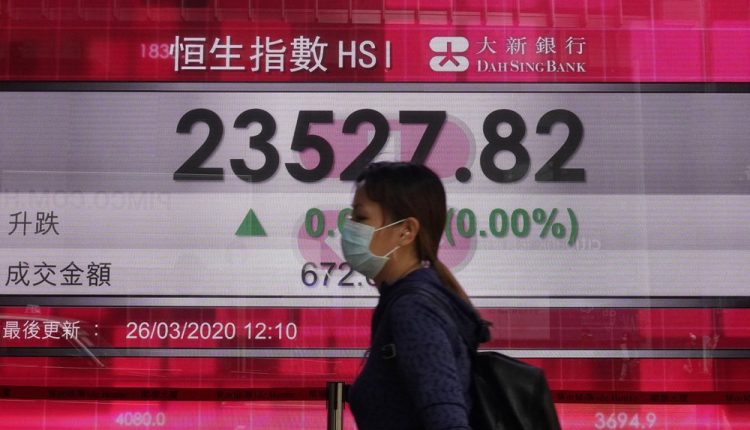Most Asian equities fell on Thursday, while the dollar and US Treasuries remained stable ahead of key US inflation data that could offer insight into the timing of a Federal Reserve interest rate cut, Reuters reported.
Chinese stocks bounced back from a steep drop on Wednesday, on track for their best month since November 2022. The yen gained as a Bank of Japan official hinted at the need to exit ultra-easy monetary stimulus.
Japan’s Nikkei share average slipped 0.45 per cent, South Korea’s Kospi declined 0.54 per cent, while Taiwan and Australia benchmarks were flat.
However, mainland Chinese blue chips jumped 0.82 per cent, recovering after a 1.27 per cent slide in the previous session. For the month, they are up 8.3 per cent, looking certain to snap a six-month streak of declines.
Hong Kong’s Hang Seng added 0.44 per cent, and MSCI’s broadest index of Asia-Pacific shares outside Japan edged 0.06 per cent higher.
The US dollar index edged 0.06 per cent lower to 103.86, driven by a dip against the yen after a Bank of Japan board member hinted at the need to consider “nimble and flexible responses,” including ending policies such as negative interest rates and yield curve control.
The dollar dropped 0.52 per cent to 149.91 yen, the euro was little changed at $1.0834, and sterling was flat at $1.26635.
Benchmark US 10-year Treasury yields were stable at around 4.28 per cent. Oil prices eased after a larger-than-expected build in US crude stockpiles stoked worries about slow demand.
Brent crude futures decreased 22 cents, or 0.3 per cent, to $83.46 a barrel, and US West Texas Intermediate crude futures dropped 30 cents, or 0.4 per cent, to $78.24 a barrel, the statement mentioned.


